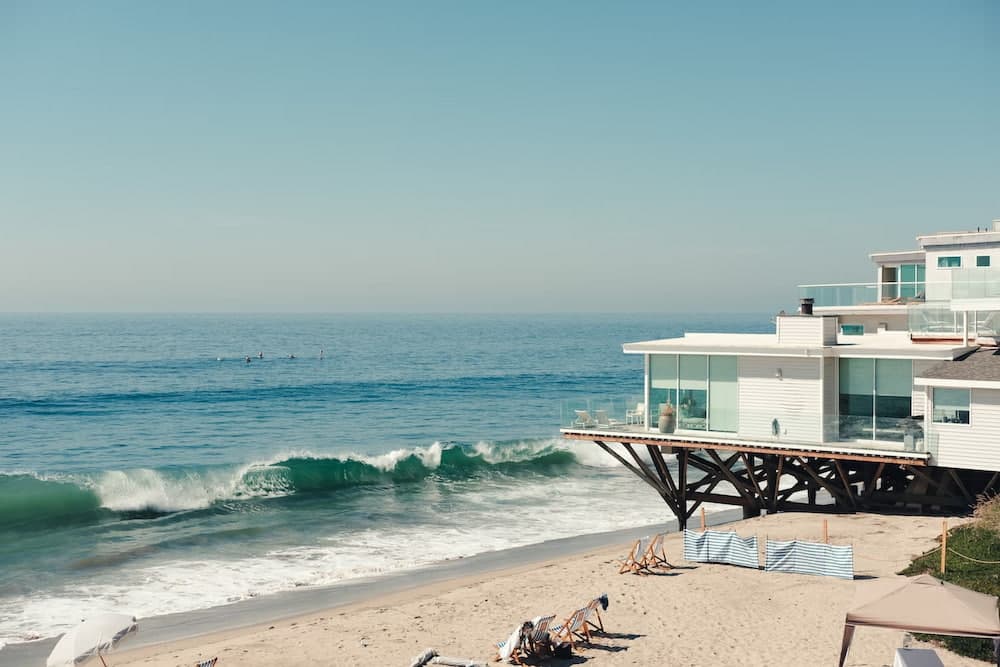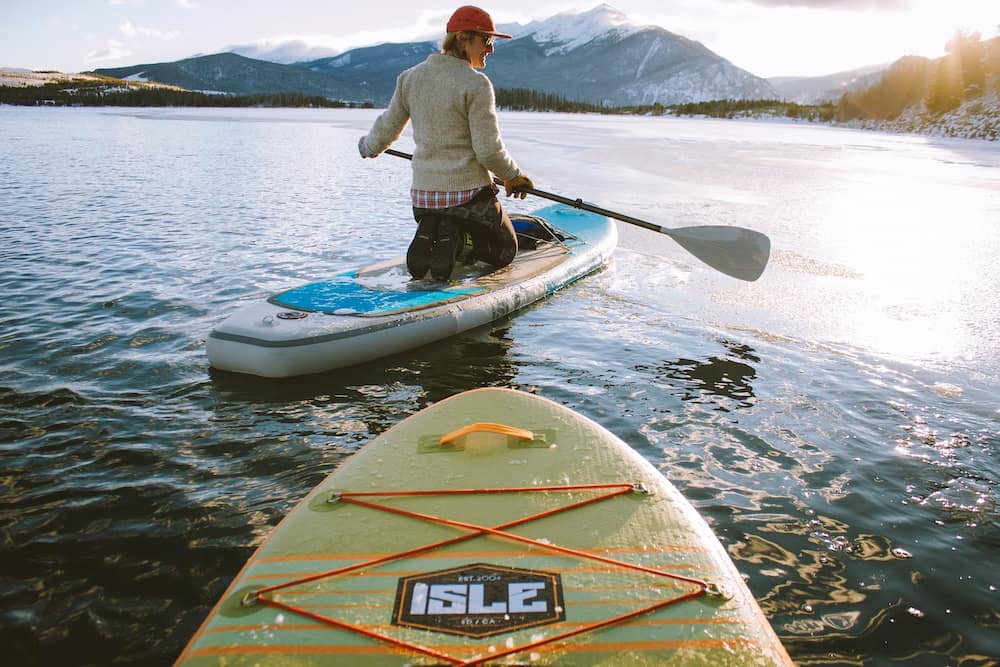How to Turn Your Home into an Amazing Vacation Rental

There’s never been a better time for turning your home into a vacation rental. Over the last decade, short-term vacation rentals have gained significant interest, and the prognosis is strong for more growth in the coming years.
Turning your home into a vacation rental isn’t as daunting as it first seems. But it’s also not quite as easy as some of the more popular rental websites might have you believe. There are a few important steps to follow even before you list your property on a booking site, and there will also be other considerations when it comes time for guests to come and go.
In the paragraphs below, we’ll explore a little background on short-term vacation rentals, some of the most popular online booking sites, how to prep your home if you want to rent it out, and even a little about how to make money from the process.
History of Vacation Rentals: The Craze
But what is a vacation rental? Quite simply, it’s a furnished house, apartment or condo rented to tourists as an alternative to a hotel.
Vacation rentals, known by multiple names across the world (fancy a “holiday let” in England, anyone?), have been very popular in Europe for years. Their popularity in America wasn’t as widespread, but that changed a little more than a decade ago, as online rental platforms and apps made it much easier to find and book available properties. According to an article in Forbes magazine, the market grew 100% between 2016 and 2019.
Even more encouraging, the projected revenue for vacation rentals is expected to be as much as $17 billion in 2022, with growth in excess of 3.6%. That means vacation rentals will generate more than $20 billion in projected revenue by 2026, according to Statista.
How Airbnb & Vrbo Changed the Landscape
The two biggest players in the online rental marketplace are Airbnb and Vrbo. Vrbo was founded in 1995 by a guy who wanted to find an easier way to rent out his condo in Breckenridge, CO. Less than a decade later, the company was purchased by HomeAway, then in 2015 was part of HomeAway’s $3.9 billion purchase by Expedia Group. Vrbo has approximately 2 million properties as of 2019.
Airbnb was founded in 2008 by some friends who inflated an air mattress in their living room and called it a bed and breakfast. Their original name and website, Airbedandbreakfast.com, targeted travelers who had trouble finding hotel rooms in saturated markets. Most recently, the company became public in December of 2020, raising $3.5 billion in its IPO. Airbnb has approximately 7 million listings as of 2020.The two companies have raised the hackles of several municipalities, annoyed more than a few travelers here and there, but they have definitely put a scare into hotel chains while creating a viable alternative for millions of travelers and a niche industry for investors and homeowners alike.
How to Rent out your House as a Vacation Rental
People usually envision a vacation rental as a secondary residence, but a primary residence or an accessory dwelling unit at a primary residence can also be rented. Of course, vacationers are the people most often looking to rent, but seasonal or temp workers, digital nomads, snowbirds and the like are all among the many travelers taking advantage of the vacation rental craze, both as renters and hosts!
Second home
If you have a second home (think cabin by the lake, condo in the mountains, cabana by the beach), it only makes sense to rent it out when you’re not occupying it.
That way, it generates passive income for you, mitigates some of the security or emergency concerns associated with having a vacant unit, can be a source of tax deductions, and, of course, will be available when you want to go on a vacation or are ready for retirement.
Accessory dwelling unit
An accessory dwelling unit is a secondary living space on the same property as a primary residence. These are also known as “secondary suites,” but you probably know them as mother-in-law suites. They can be in a basement, attic, above a garage, in a carriage house or attached to the main house. The biggest takeaway is that they should have their own outside access, as well as plumbing and often a place to prepare meals.
Timeshares
Don’t confuse timeshares with short-term vacation rentals. A timeshare is a single property jointly owned by multiple purchasers, each of whom has an allotment of usage. That’s not to say you can’t use your allotted time in your timeshare as a rental, but then where are you taking YOUR vacation?
How to Make your Rental Appealing
Before you start renting, there are a few steps to take to create the most appealing listing to publish on rental websites.
Photos will be one of the key elements, but there are a few easy-to-follow steps before you whip out the Instamatic and start clicking. After taking and selecting photos, you’ll need to figure out what features and amenities are most important, then we’ve also got some tips for writing an attention-grabbing listing.
A picture’s worth a thousand words
You’re going to need lots of pictures to show off your property. But just how many is “lots”? Vrbo recommends at least 25 high-quality photos, while Airbnb has a maximum of 100 allowed, with a minimum resolution of 1024 x 683px.
So, get a camera and keep in mind what you would expect to see—and what you don’t want to see—when you are booking a hotel or vacation rental for your family. Make a list of what photos to take, and get snapping, as soon as you review this list, of course:
- Clean – No one wants to see dirt, smudges, insects, water stains, wrinkles or anything unsightly when they are considering spending a night (or several nights) somewhere. Clean the windows, sweep and mop the floors, wipe off the fingerprints, vacuum the carpets and so on. It’s also important to make sure any visible linen is clean and wrinkle-free.
- Declutter – This is a topic we know a little something about. Decluttering is one of the easiest ways to make a room seem larger and the space more inviting.
- Prep each room – Make sure the space looks welcoming and comfortable. This includes turning on all the lights and opening the window blinds and curtains. Pay attention to little things like making sure the beds are made, the washcloths and towels are folded properly and so on. Put a magazine or book on a table. Turn off the TV. Light a candle. Plump the pillows. Display the throw blankets. Put a game or a deck of cards on the game table and a book on the nightstand.
- Panoramic and angle shots – Most cell phone cameras offer a panorama feature, which is a great way to give prospective renters a way to gauge the area a little better. If you’re using an actual camera, a wide-angle lens should suffice. Another helpful hint is to take photos from various angles to give a little better sense of the layout. This can also help prevent reflections of light, flash or even the photographer from showing up in the shot.
- Location photos – One thing that will attract renters is an appealing neighborhood. Do you have a spectacular view? Is there a park next door? Are there cute shops or friendly restaurants within walking distance? Include a photo or two!
- Details – When you look at your pictures to select the best images for your listing, don’t just pick the first ones you took. Take a deep dive into each photo and look at all the details. Even with all the tips we outlined above, there’s bound to be something that you missed during your shoot: a misplaced water glass, streaks on a mirror, dust on a bookshelf. At least in this age of digital photography, it’s easy to remedy the issue and re-shoot the photo in just minutes.
Want more tips for taking photos? Check out this blog from iGMS.com
Think like a Renter: Amenities and features
Vacationers are always looking for the best amenities. Listing them correctly helps set the expectations for your property and will help you appear in results when people are searching for specific features. Most rental websites guide hosts through the process.
According to Airbnb, the top amenity renters are looking for is a swimming pool or hot tub. But that doesn’t mean you should start digging up your yard or worse, just give up, if you don’t have one. List the amenities that your property offers and highlight the ones that are most frequently searched for, such as:
- Wi-Fi
- Kitchen
- Free parking
- Washer/dryer
- Air conditioning
- Workspace
Your guests will also expect your rental will have a minimum of household items. We’ve created a list of basic items to have on hand for your guests:
- Toilet paper (with extras)
- Hand soap/body wash
- Towel and washcloth per guest
- Linens for each bed
- One pillow per guest
- Cleaning supplies
While the following items are usually not expected, your guests will appreciate it if you have these next-level items available:
- Extra linen and towels (including beach towels, as appropriate)
- Shampoo and conditioner
- Coffee maker (state what kind, too)
- Plates, flatware, kitchenware, stemware, mugs
- Pots and pans
- Cooking essentials (salt, pepper, oil)
- Hangers, iron & ironing board

Of course, you can go overboard if you’re planning to attract a certain type of vacationer, so ensure that you tout everything you’re providing to add appeal to your property. If you’re by the beach, have beach towels, floaties, and boogie boards to borrow. If you’re in the mountains, trail maps, walking sticks and snowshoes might be in order. If you’re catering to young families, have things like kid-centric games, TV and movie options, cribs, and high-chairs on hand. If you’re accepting pets, have pet food bowls, water bowls and similar amenities to support your four-legged visitors.
How to write about your rental
While price, location and amenities are going to get vacationers interested, and the photos are going to make them fall in love, it’s your description that’s got to close the deal.
Here are the important tips to consider when composing your description:
Write a catchy headline — include descriptive words like charming, eclectic, and beautiful.
Ex: Rustic 4-Bedroom Slopeside Cabin near Trails, Lake
Say what makes the property unique — add what makes your rental stand out.
Ex: 10-minute stumble from an award-winning brewery
Always have the traveler in mind — ask yourself what you’d want to know if you were staying there and be reassuring.
Ex: Bears rarely attack visitors
Be honest and real — if your home has quirky features or things that may prove challenging for some guests, don’t hide them.
Frequent weather-related power outages mean more candlelight dinners
Be brief — if it’s listed in the amenities and it’s not unique, you probably don’t need to write about it, too, but if it’s unique and helpful, add it to your text.
Don’t rent surfboards, use ours!
Read more of Airbnb’s tips for prospective hosts on their website, and make sure to skim lots of other listings, especially from the top hosts, to get an idea of what will work for you!
How Much Income Can I Expect?
Once you’ve got your proverbial ducks in a row and your short-term vacation rental is listed on various booking sites, you probably want to know how much you can expect to make from this venture.
According to this article, Airbnb hosts average about $11,000 annually, whereas Vrbo hosts can earn upwards of $33,000 a year. Those numbers can be deceiving, partially because of the types of rentals involved. Airbnb hosts might be renting a room in their house, while a Vrbo owner might be hosting an exotic vacation rental in a destination location. Your results will vary, so we’ve included some tips for setting your rates and what expenses you might incur.
How do I establish a fair rental rate?
There are three key elements in pricing: being able to balance expenses, comparing rates of similar properties, and evaluating your own property objectively. Of course, there are many considerations when setting your rate. Check out this blog from Grand Welcome to see their approach to setting your short-term rental rates.
Won’t I have some expenses?
Of course, renting through Vrbo and Airbnb isn’t free. Airbnb charges a service fee of 3% for hosts, while Vrbo’s fee is 8%.
And there are other expenses involved, too. Keep reading to see how property management companies, local taxes, and other expenses come into play.
Property Management Companies
There’s no law against you managing your own rental property. Between each guest stay, just clean and disinfect, change the sheets and towels and you’re good to go to the next rental. Right?
But what happens if your property is hours (or days) away from your main residence? Or you have a full-time career? Or you have multiple properties? Or you just don’t want to take on that burden?
For most short-term hosts, the solution is to hire a property management company to ease the burden of booking, cleaning, and maintaining the rental unit, as well as collecting taxes, and other day-to-day requirements. This is also the key to making your vacation rental a truly passive source of income, rather than one that requires a significant outlay of time and effort on your part.
Fees & costs for property management companies
It’s important to understand the fee structures of a property management company. As this article at Hostfully points out, there are three standard fee structures: fixed, guaranteed and commissioned. Each has its pros and cons, and you as the property owner need to determine which works best for your individual situation.
Insurance for hosts
As a host, you’ll have to make sure that you carry insurance on your rental property. Many hosts use insurance companies that specialize in STVRs, vacation homes and the like, to cover unexpected occurrences like fires, plumbing disasters, theft, and accidental guest injuries.
Learn more by reading this article at Investopedia, covering their list of the 7 Best Short-Term Rental Insurers.
Is all this legal?
For the most part, yes, it’s legal. Depending on where your prospective rental property is located, there may be laws that limit your ability to use your property as a short-term vacation rental, mandate the length of stay, and impose taxes.
The laws vary from city to city and state to state. Many sprung up as a result of increased complaints about renters, failure to collect taxes and more, while other regulations were put in place to protect renters from scammers and neglectful property owners.
If you’re curious, New York City, San Francisco and Los Angeles are three of the most-visited cities in the U.S. and they have some of the strictest regulations in the nation. The Short-Term Rental Laws blog, from 2nd Address, gives a high-level overview of some of the major U.S. cities and is updated periodically as bills are introduced and laws change. Be sure to check with your local municipality before listing your property to ensure you’re not violating any local statutes that could result in massive fines.
Final Thoughts on How to Turn Your Home into a Vacation Rental
If you have a second property or are looking to invest in rentable real estate, short-term vacation rentals are a great option. The market is forecasted to keep growing, so why not take advantage of the craze?
Yes, there’s a bit of homework (literally and figuratively) along the way, but by following the steps outlined above (and with the help of industry professionals), you can be on your way to generating some passive income in no time. Of course, if you need storage along the way, look us up. Store Space offers clean, secure affordable self-storage in more than 20 states and we’re still growing. Use our storage location finder page to get started.






